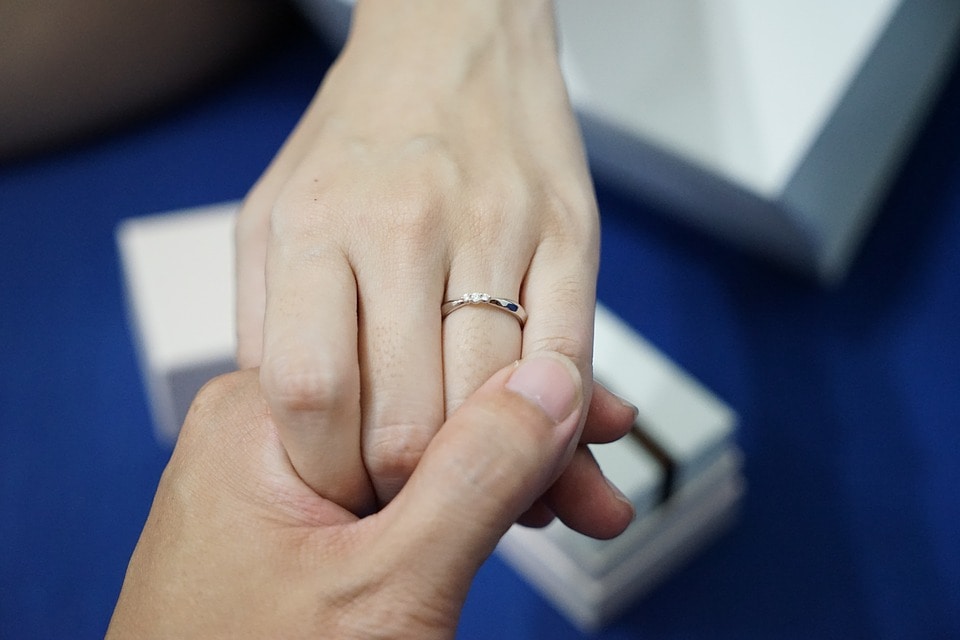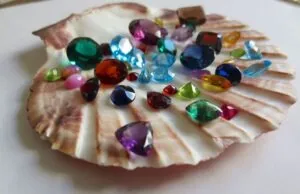
Table of Contents
If you’re new to online jewelry auctions then you might be surprised by how much they can vary from one another in terms of how they are set up, what rules apply to each of them, what the prices for the jewelry and the surrounding services are, and so on.
What’s more, some of the terms used in jewelry auctions can easily catch you off guard if you haven’t heard them before and you don’t know what they mean. One such example is no reserve online jewelry auctions.
No reserve jewelry auctions are a great opportunity for buyers to find rings and other jewelry pieces that aren’t just unique and gorgeous but also quite reasonably priced. They are a special type of auction with a customer-friendly bidding process but also with a couple of possible pitfalls that you’ll want to look out for.
So, what exactly are they?
What are no reserve online jewelry auctions?

If you try to figure this type of auctions out solely by their name you might get a bit confused – how can the auctioneers hold an auction for jewelry pieces if they don’t have a reserve?
But that’s not actually what “no reserve” means.
A reserve in an auction means the reserve price – that is, a minimum price that the seller is willing to accept for the piece. If the bid meets or exceeds this price, then the piece will be sold. “No reserve” means that the auctioneer doesn’t reserve the right to call off the auction if the highest bidding price isn’t to their liking.
The way other auctions work is that even if the bidding starts at a certain low price – say, $30 – the auctioneer can still have a desired price for their jewelry they want to get – say, $200 – that is either hidden or announced publicly. And, if that price isn’t reached, the auctioneer can simply refuse to sell the jewelry to the highest bidder.
This type of bidding can be very frustrating for the buyers as they can spend a lot of time researching, looking for, choosing, contemplating, and bidding, and still end up empty-handed even if they win the bidding process.
No reserve jewelry auctions, on the other hand, carry with them the promise that even if the auctioneers have specific prices they want, they will sell the jewelry pieces to the highest bidders regardless of the final price.
Why should you be interested in no reserve online jewelry auctions?

The main problem with standard auctions or “reserve jewelry auctions” is that many of the really good and valuable jewelry pieces have quite high prices that the auctioneers want met if they are to part with the jewelry. This defeats one of the major reasons why many people visit online jewelry auctions in the first place, which is to get affordable high-quality jewelry.
At most auctions, particularly at no reserve jewelry auctions, the jewelry is sold at its market value and not at its retail price. And that’s great for the consumer because the market value of most jewelry pieces is usually 2x or 3x times lower than its retail price.
However, if the auctioneer reserves the right to deny the sale unless a certain price is met, the jewelry pieces aren’t going to be that cheap.
So, if you want to take part in a “fair” bidding process where you’ll pay what you’ve bid, no reserve online jewelry auctions are for you.
What are the drawbacks of no reserve online jewelry auctions?
Of course, these auctions do carry certain risks as well. These risks and drawbacks usually aren’t anything major that you can’t avoid with a little research and good thinking, but they do need to be kept in mind. Here’s what you’ll want to look out for:
Hidden Fees and Charges
No reserve auctions will sometimes include “hidden prices” for additional services or simply increased prices for standard services such as shipping charges or some hidden handling fees. The way to avoid such problems is twofold:
1) always make sure that the auction you’re participating in is organized by reputable auctioneers.
2) Always look at the fine print of any auction and sale. Auctioneers are obliged to list all prices including for the smallest additional services they offer so you should be able to easily figure out if someone is trying to get something extra from you.
Quality of the Jewelry
The overall quality of the jewelry pieces in no reserve online jewelry auctions usually won’t be as high as at auctions where the auctioneers have reserved the right to deny sales.
This isn’t such a bad thing for the average consumer, however, because a good no reserve auction will still have good quality and competitively priced jewelry offers that are of excellent quality and design. The difference is that the really amazing and unique jewelry pieces – the ones that make the news, so to speak – are rarely included in no reserve auctions as the auctioneers really want to maximize the price they can get for them.
If, however, you’re “just” looking for a high-quality engagement ring or another jewelry piece – no reserve auctions will still offer a great range of quality pieces.
What are some of the best tips for bidding at no reserve online jewelry auctions?

So, what else should you know and what should you do at a no reserve online jewelry auction to get the best possible results? Here are some tips you’d want to keep in mind:
- Always do your research beforehand. You don’t need to be an expert to attend an online auction but you’d want to know what’s what and what you’re looking for.
- Look at the auction’s catalog/exhibit before it starts. Most online auctions will allow their visitors to look at and inspect the pieces that’ll be offered at the auction ahead of time. This gives people the opportunity to check out what they can bid on, decide what they want, and research a bit more about it. Some auctioneers can even sell certain pieces to someone before the auction if they get offered a good price.
- Determine a budget and factor in shipping costs. One of the main problems with online auctions for a lot of people is that they tend to overspend when they get caught up in the excitement of the bidding process. Use the time before the auction starts to not only research about the jewelry that’s going to be up for grabs but to also decide how much money you’re willing to part with.
- Ask for certifications and other quality guarantees. Ideally, there will be GIA certificates and condition reports for every piece you’re looking at but there aren’t – ask for them.
- Ask more questions – lots of questions. Don’t hesitate to inquire about everything that pops into your mind. Email and even phone the auctioneers when possible and ask for additional photos, more information, and so on.
- Keep an eye for the shipping prices and any possible additional charges. As we mentioned above, this is one of the main ways auctioneers try to get some extra money from no reserve auctions.
- Check the shipping details. While you’re looking at the shipping prices it’s also worth paying attention to where the items are going to be shipped from. Even when the shipping prices are set fairly, there’s a huge difference between something being shipped from your country or state and if it is shipped from across the globe.
- Check for combined shipping. If you’re bidding on multiple items at an auction, it’s a good idea to try and go for combined shipping. If all or most of your items are going to be shipped from the same place you can save a lot of money by shipping them together.
Wrapping Up
And those are most of the basics you’ll need to be aware of. At the end of the day, no reserve online jewelry auctions are a great way to find great quality jewelry pieces at very fair prices from the convenience of your own home. They do require that you do a bit of research beforehand and that you keep an eye on every step of the bidding process but if you do that it’s almost always more than worth it.







